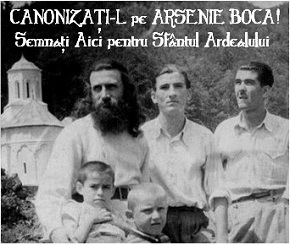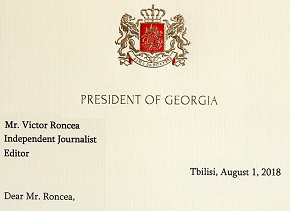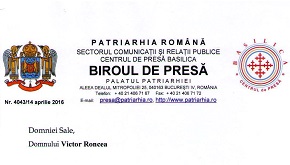Ceea ce scrie ZIUA si subsemnatul 🙂 de cativa ani buni, inclusiv in ce priveste scurgerile de info de la NATO la Moscova, adevereste azi presa occidentala de varf, respectiv IHT. Dar ceea ce nu au luat in calcul inca este ca Ucraina urmeaza sa fie viitorul magar troian al KGB/GRU in NATO.
Chiar astazi, cand se semneaza la Viena un nou contract pentru Nabucco, iata cu Ungaria a anuntat ca este interesata (normal) in South Stream – “conducta aurie” a lui Putin.
Mai jos, nota ZIUA si articolul original din IHT.
Credibilitatea Bulgariei si Ungariei in NATO a inceput sa fie pusa la indoiala, informeaza presa occidentala.
Dupa semnarea unui tratat cu Rusia care saboteaza proiectul UE al gazoductului Nabucco, Bulgaria a fost acuzata ca transmite rusilor secrete NATO. “Pot pune pariu ca orice am impartasit cu bulgarii in cadrul NATO s-a dus direct la Moscova”, a declarat pentru New York Times un oficial NATO care a preferat sa-si pastreze anonimatul. Pe de alta parte, noul sef al serviciilor secrete ungare, care a fost instruit timp de sase ani la Academia KGB din Moscova, a devenit director al Comisiei de Informatii a NATO, initiativa perceputa de diplomati ca o posibila compromitere a securitatii aliantei, scrie International Herald Tribune, preluat de Mediafax.
New NATO intelligence chief was trained by KGB
By Judy Dempsey – International Herald Tribune
Published: February 3, 2008
BERLIN: The new chief of the Hungarian secret services, who spent six years at the KGB’s academy in Moscow during the 1980s, has become chairman of NATO’s intelligence committee, a development that diplomats said could compromise the security of the alliance.
Sandor Laborc, 49, was personally chosen by Prime Minister Ferenc Gyurcsany of Hungary as director of the country’s counterintelligence National Security Office in December, after a bitter dispute between the governing coalition led by the Socialists – the former Communists – and the main opposition party, Fidesz.
Laborc, a former Communist who was trained at the KGB’s Dzerzhinsky Academy from 1983 to 1989, according to members of the national security committee in the Hungarian Parliament, had failed to win support from that committee, which oversees such appointments.
Despite that, Gyurcsany and Gyorgy Szilvasy, the minister responsible for the intelligence services, pushed through the appointment.
“A decision by the National Security Committee has no binding effect,” Gyurcsany’s office said in a statement issued in response to several written questions about Laborc from the International Herald Tribune. “Gyorgy Szilvasy had the right to make a decision in his own capacity and advise the prime minister. He justified the recommendation by introducing General Laborc as someone with unquestioned professional credentials.”
Soon after his appointment, Laborc took over the chairmanship of NATO’s special committee dealing with a wide range of intelligence issues, a rotating post that is held for a year and which fell to Hungary last month, alliance officials confirmed Friday.
The committee, whose main task is to analyze and share intelligence, includes all of the secret service chiefs of NATO countries, who meet several times a year.
Several NATO delegations, including the United States, whose ambassador was asked several times to comment on Laborc’s appointment, declined to do so.
James Appathurai, a NATO spokesman, said, “We do not comment on personnel appointments or intelligence issues.”
Some delegations said they had not been aware of Laborc’s biography. His short curriculum vitae posted on the Hungarian security service’s official Web site makes no mention of his time spent in Moscow. His past came to light when Szilvasy proposed him for the top intelligence job last autumn.
NATO diplomats who did agree to discuss the appointment insisted on anonymity because of the sensitivity of the matter. They said that even if they had reservations about Laborc, they were in no position to block his appointment.
“NATO makes decisions on the basis of consensus,” said a senior diplomat from an East European country. “If we had questioned this appointment then we would have to go further up to the top, in this case the Hungarian prime minister, to ask him about Laborc’s past.”
Another diplomat, from a Western country, said, “It would have taken one phone call by the U.S. ambassador to NATO to stop this appointment. It would have been a signal to other countries which might think they can still get away with this.”
In its statement, Gyurcsany’s office said: “Not a single ambassador protested. Through diplomatic channels we received information that our partners are satisfied with the development of interagency cooperation.”
In practice, Laborc’s appointment means that some NATO countries will be much more wary about sharing sensitive intelligence.
“Here we have a person who was trained by the KGB. I cannot assume that he has changed that much in his attitudes,” said another NATO diplomat, predicting that several important NATO countries would hold back on sharing intelligence. “NATO, it must be said, is a very leaky organization,” the diplomat added.
Indeed, NATO has been plagued with leaks. Hungary, Poland and the Czech Republic joined the alliance in 1999, and the rest of the former Warsaw Pact countries in 2004. After that expansion, military attachés from the Bulgarian delegation did not receive clearance to have access to a certain level of intelligence material.
“You could bet that anything we shared with Bulgaria inside NATO went straight to Moscow ,” said another senior Western European diplomat. “The old Communist nomenklatura and secret services is still around in Romania and Bulgaria. But I must say the case of Hungary is very, very disappointing.”
Earlier, in the spring of 1999 when NATO was selecting bombing targets in its war to stop Serbian repression of ethnic Albanians in Kosovo, Greece, a member of NATO and the European Union but an ally of Serbia during the Balkan wars of the 1990s, repeatedly leaked alliance plans to Belgrade, NATO diplomats said Friday.
In Hungary itself , Laborc’s appointment has deepened the mistrust and polarization between the governing Socialists and the Fidesz opposition because of the way the prime minister by-passed the Parliament’s national security committee.
Although the committee’s decision is not constitutionally binding, such committees have served as important instruments of democratic accountability since 1990, when the Communists were removed from power in Hungary.
Moreover, until 2002 when the Socialists won the parliamentary elections, any Hungarian official who had served for more than a year in Moscow could not, for security reasons, be appointed to positions higher than a department head.
“At stake is the fundamental regard for the rule of law,” said Janos Martonyi, a former Hungarian foreign minister and Fidesz supporter. After a five-hour debate by the national security committee in late November, Laborc failed to win a majority of the 11 votes. No other candidate was offered by the government. The opposition declined to put forward a candidate.
Fidesz claims that Gyurcsany, a former Communist youth leader turned millionaire who has close ties to President Vladimir Putin of Russia, has been politicizing the secret services for domestic reasons in order to keep track of the opposition, the media and trade unions.
The opposition also has criticzed Gyurcsany for trying to push through austerity measures without public consultation or democratic accountability.
It has challenged the security services’ use of live ammunition against mostly peaceful demonstrators during protests in September 2006.
The protests had been set off by a leak of Gyurcsany’s speech to party supporters, soon after the spring 2006 elections, in which he said the party had lied “day and night” about the miserable state of the economy in order to win.
Zsolt Nemeth, chairman of the Parliament’s foreign affairs committee and a leading member of Fidesz, said it was “a great shame what is happening to the idea of democratic accountability.”
He said the two biggest concerns over the Laborc appointment were that he would replace the young professionals who entered the services during the 1990s and bring back people loyal to Gyurcsany.
“Above all, our concern is that the security services will be become politicized and be used for domestic politics,” he added.
Peter Balazs, an economics professor at Central European University in Budapest and a supporter of the government, dismissed Fidesz’s criticisms.
“Much has changed in Hungary since Laborc’s time spent in Moscow over 20 years ago,” he said. “This is all about internal politics. Just because someone was in Moscow during the 1980s, I don’t think that we should sack anybody after 20 years.”
Besides the opposition, the United States and Britain are concerned about Gyurcsany’s relations with Putin, according to British diplomats in London.
Last year, Gyurcsany publicly supported Russia’s plans to build the South Stream pipeline that will compete with the EU project known as Nabucco, which is intended to weaken Europe’s dependence on Russian gas imports.
British diplomats, speaking on the condition of anonymity, said that Gyurcsany had changed tack under American and British pressure. Then last December, during a meeting of the Hungarian and Russian cabinets in Budapest, Gyurcsany came out again in support of the South Stream project.

 February 5th, 2008
February 5th, 2008  VR
VR 

 Posted in Uncategorized
Posted in Uncategorized  Tags:
Tags: 




































